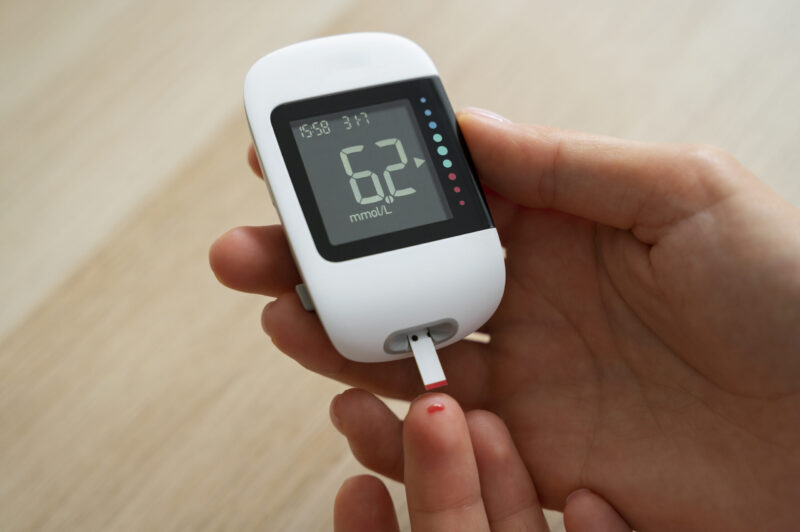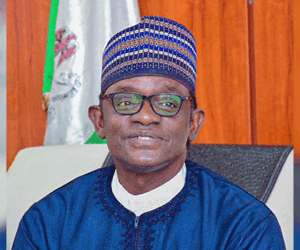A new study has shown that inflation and rising living costs have severely affected access to essential diabetes medication in Nigeria, pushing many patients into financial hardship and worsening health outcomes.
The study, conducted by Development Governance International Consult (DGI Consult) with support from Gatefield, assessed the implications of inflation on access to antidiabetic drugs across the country.
Speaking during the World Diabetes Day Media Webinar tagged “Impact of Inflation on Access to Diabetes Medicines”, on Wednesday, Farida Adamu, Gatefield’s Research and Insight Lead, said the findings point to a public health emergency that has gone largely unnoticed by policymakers.
Quoting the report, Ms Adamu said Nigeria has the highest number of people living with diabetes in Africa.
While figures vary across institutions, the International Diabetes Federation (IDF) estimated three million cases in 2021, the World Health Organisation (WHO) put the number at 8.26 million, and the Diabetes Association of Nigeria reported six million cases. Over 40,000 deaths have been attributed to the disease, with many more cases undiagnosed.
Ms Adamu explained that the study was designed to provide empirical evidence of how inflation has disrupted diabetes care and exposed the growing inequality in access to treatment.
“We did not just want to say life has been tough; we wanted to show, with data, that inflation has had a measurable impact on access to diabetes medication,” she said.
Between 2018 and mid-2024, Nigeria’s inflation rate rose from 11.37 per cent to 34.19 per cent, directly affecting the prices of insulin and other essential drugs such as Glucophage.
The cost of a 10ml vial of insulin increased by more than 200 per cent between 2022 and 2024, making diabetes management increasingly unaffordable for most Nigerians.
Beyond the reach of most Nigerians
The study compared the average household income with the annual cost of diabetes management, revealing that only people earning above N2.5 million per year can afford consistent treatment without falling into debt.
For the majority of Nigerians, however, managing the condition has become financially crippling. Many now spend up to 80 or 90 per cent of their income on drugs, with some forced to borrow to survive.
The report also documented the experiences of patients who said they could previously buy insulin for between N1,000 and N2,000 but now pay as much as N18,000.
Others reported that their monthly medication costs had soared from N80,000 to nearly N180,000, compelling them to skip doses or cut back on food to cope.
Ms Adamu warned that the crisis has become both a medical and nutritional challenge.
“When people spend nearly all their income on medication and have little left for food, it becomes impossible to live a healthy life,” she said.
She added that the situation calls for urgent policy intervention to make diabetes care affordable and sustainable.
The report recommended subsidising antidiabetic drugs, expanding access through the National Health Insurance Authority (NHIA), and promoting local production of insulin in partnership with Nigerian pharmaceutical firms.
Ms Adamu also stressed the need for improved data collection and surveillance, noting that the absence of reliable national data has prevented the government from fully understanding the scale of the crisis or responding effectively.
Patients skipping treatment, facing life-threatening complications
Corroborating the findings, Felicia Anumah, Consultant Physician Endocrinologist at College of Health Sciences, University of Abuja, described the situation as dire, noting that diabetes has become even more expensive to manage in the current economic climate.
Ms Anumah said many patients can no longer afford their medication or clinic visits, leading to a rise in severe complications.
She recalled the case of a 34-year-old unemployed graduate who had lived with diabetes for 12 years, lost both limbs, and eventually died after being unable to afford treatment.
According to her, clinic attendance has dropped sharply as patients increasingly prioritise food over drugs, with many sending messages to apologise that they cannot afford transport or medication.
She warned that without consistent diabetes care, more Nigerians are at risk of life-threatening complications such as stroke, heart disease, kidney failure, and amputations.
READ ALSO: WHO urges African countries to strengthen diabetes prevention, care across all life stages
Diabetes
Diabetes mellitus is a chronic condition that occurs when the body either fails to produce enough insulin or cannot use it effectively, leading to elevated blood-glucose levels that can damage the heart, kidneys, nerves, and eyes if left unmanaged.
On Monday, PREMIUM TIMES reported that Africa already has more than 24 million adults aged 20 to 79 living with diabetes, a figure projected to reach 60 million by 2050 if urgent action is not taken.
The WHO urged African countries to strengthen diabetes prevention and care across all life stages, from childhood, adolescence, adulthood, and old age.










